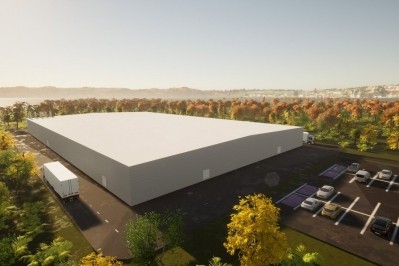Estonian insect farming startup flying high

The firm announced in October that it had raised $3M in a seed round of funding from angel investors to help it reach commercial scale.
We spoke to the founder and CEO of the Black Soldier Fly (BSF) derived protein, fat and fertilizer producer, Arseniy Olkhovskiy, to find out about the company’s short and longer-term ambitions.
Southern Vietnam will be the location of Flyfeed’s first commercial BSF factory, which will be a data-driven, state-of-the-art vertical farming operation. The nearby Port of Saigon allows uninterrupted global shipping. “We intend to finish construction of our 15,000 sq. m facility in 2023. The capacity of that plant will be 17,500 tons of insect products per year.”
The company will sell the fertilizer product locally, but the protein and fat components will have much wider reach, including the European feed market, he said.
Insect protein companies are attracted to Asia as a location, not only because of the lower CapEX when settng up operations, but also due to the abundant food waste that can be leveraged as feedstock, according to Olkhovskiy.
“It is crucial for insect farming factories to have good access to raw material sources, plant-based substrates that are allowed to be used as feed for insect larvae in terms of European regulation and, at the same time, perform well as regards insect growth rates. Asia, with its highly developed agriculture, but under-developed food processing industry, offers insect protein companies a great opportunity for scale.”
Flyfeed plans to use either grain or fruit and vegetable processing by-products as feedstuffs for its larvae. “It has been unexpectedly easy for us to get support from local Vietnamese officials for the establishment of our facility as we offer a waste processing solution that is eco-friendly, and sustainable.”
Expert advice
The Estonian company’s advisory board has over 35 experts, and its CTO is Dr Nathalie Berezina, who was formerly with French mealworm producer, Ÿnsect.
The startup's development team comprises experts in biotech and computer science. Along with that, Flyfeed has been collaborating with engineers, both in house and externally, notably, Christof Global Impact. It has also been testing various rearing substrates with lab partners.
Moreover, the Flyfeed team has been talking to the feed industry over the past 12 months. The CEO said the company has now signed letters of intent with a number of leading European feed manufacturers, on the basis that its BSF derived products will be competitively priced and that its technology has been designed to be compatible with EU regulation.
By 2026, he expects Flyfeed to be producing the cheapest insect protein for animal feeds at 10 factories globally, and in 2027 the CEO anticipates launching into human food production.














